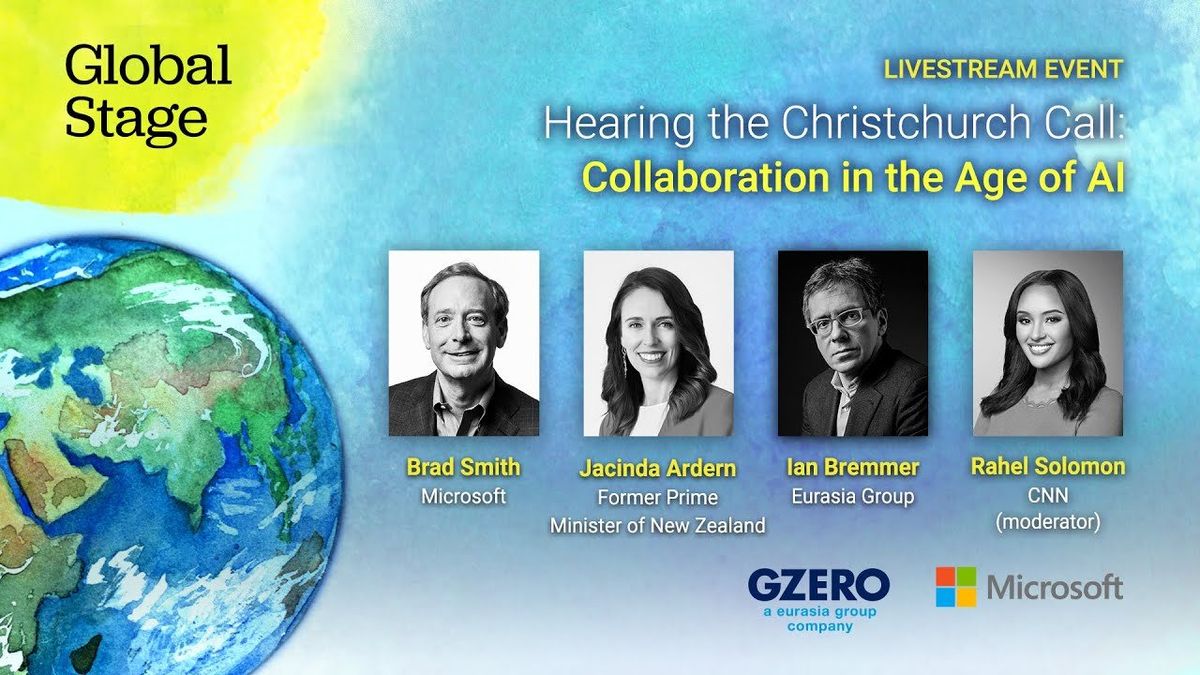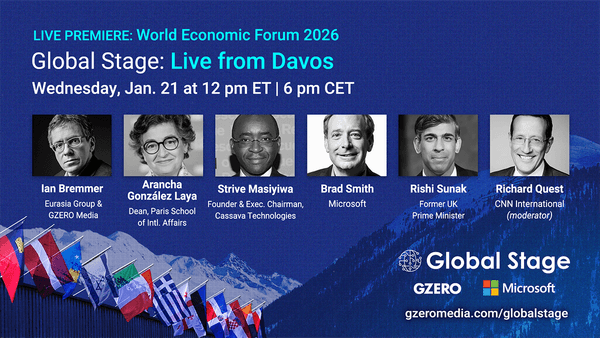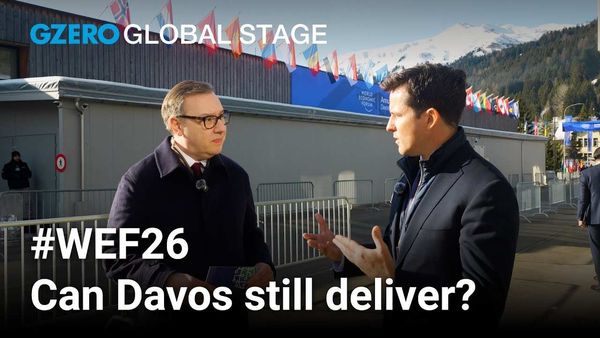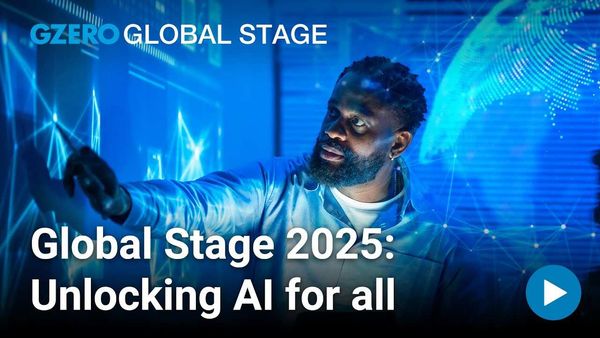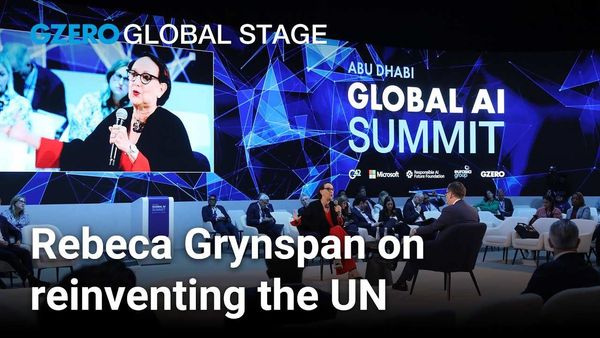After a terrorist attack on a mosque in Christchurch, New Zealand, was live-streamed on the internet in 2019, the Christchurch Call was launched to counter the increasing weaponization of the internet and to ensure that emerging tech is harnessed for good.
Since its inception, the Christchurch Call has evolved to include more than 120 government and private sector stakeholders. The organization, pioneered by the French and New Zealand governments, will hold its next major summit at the Paris Peace Forum in November.
Dame Jacinda Ardern, former Prime Minister of New Zealand who led the response to the Christchurch attack; Ian Bremmer, president and founder of Eurasia Group and GZERO Media; and Brad Smith, vice chair and president of Microsoft sat down with CNN’s Rahel Solomon for a Global Stage livestream on the sidelines of the UN General Assembly in New York. The event was hosted by GZERO Media in partnership with Microsoft.
Reflecting on the catastrophic attack that prompted the formation of the Call and its mission, Dame Ardern recalled how, on that day, ”I reached for my phone to be able to share that message on a social media platform, I saw the live stream.” She notes how that became a galvanizing moment: In the “aftermath of that period, we were absolutely determined … we had the attention of social media platforms in particular to do something that would try and prevent any other nation from having that experience again.”
That led to the formation of the organization in a mere eight-week period, Ardern said. But identifying hate speech and extremism online that can fuel violence is no small feat, Ardern acknowledges, adding that while the goal can indeed appear “lofty,” the group’s focus is on “setting expectations” around what should and shouldn’t be tolerated online.
But what did tech companies learn from the Christchurch experience about their own roles in moderating content, overseeing algorithms, and mitigating potential radicalization and violence?
One major development that came out of the Christchurch Call, Smith notes, is what’s known as a content incident protocol. “Basically, you have the tech companies and governments and others literally on call like doctors being summoned to the emergency room at tech companies and in governments so that the moment there is such a shooting, everybody immediately is alerted.”
Emerging technologies – most notably artificial intelligence – mean that the Christchurch Call must remain nimble in the face of new threats. Still, Ardern says that’s not necessarily a bad thing because AI presents both challenges and opportunities for the organization. “On the one hand we may see an additional contribution from AI to our ability to better manage content moderation that may be an upside,” she says. But “a downside,” she notes, “is that we may see it continue to contribute to or expand on some of the disinformation which contributes to radicalization.”
Bremmer shared this view of AI, calling it both “a tool of extraordinary productivity and growth, indeed globalization 2.0,” while also acknowledging the threat of disinformation proliferation: “Fundamental to a democratic society, an open society, a civil society, fundamental to human rights and the United Nations Charter is the idea that people are able to exchange information that they know is true, that they know is real,” he says.
Four years after the Christchurch attack, there is indeed a sense of urgency surrounding the need for governments to better understand emerging technologies and their powers over politics and society. “Governments understand that this is systemic, it is transformative, and they're not ready,” Bremmer says, adding that “they don't have the expertise, they don't have the resources, and we don't yet have the architecture … we're late!”


